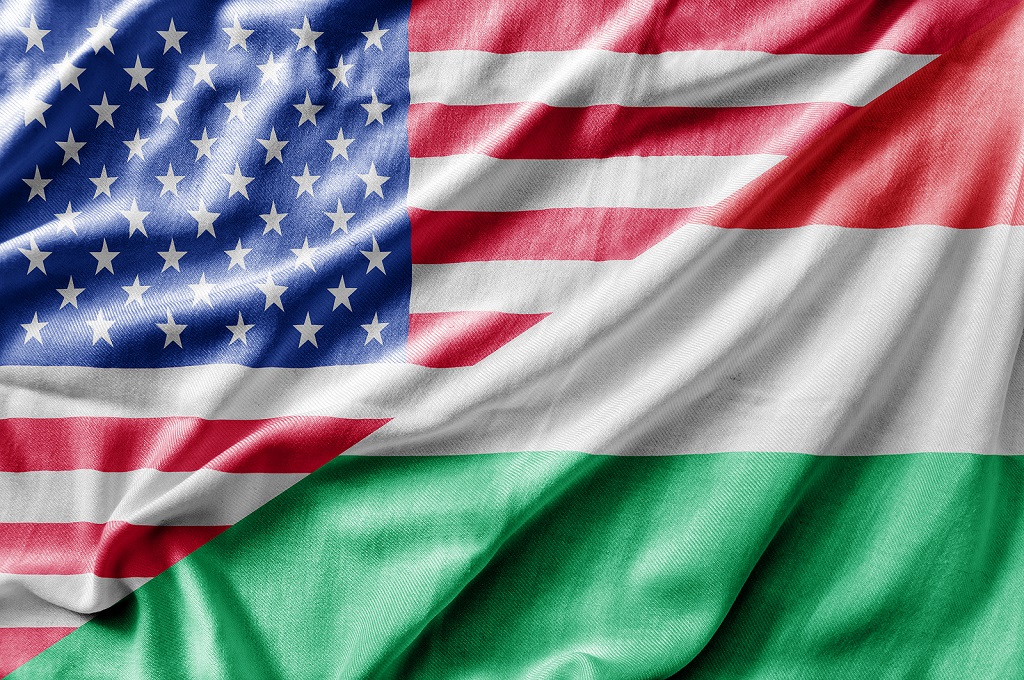2021 marks the centenary of the diplomatic relationship between the United States and Hungary, which began 100 years ago in 1921. And while political relations between the two countries have not always been smooth, American companies have long been a successful presence in the Hungarian economy. According to Gábor Farkas, partner at PWC Hungary, they have played a major role in the development and healthy growth of the Hungarian market economy after the fall of communism.
The figures speak for themselves: the US is the second largest investor group in Hungary, while 1,700 US-based companies employ 106,000 Hungarian workers. While the volume of Hungarian-American trade increased by 68 percent between 2010 and 2020, 10 percent of foreign working capital in Hungary was brought by US investors.
On the other side, the United States is Hungary’s second largest export market and second most important trading partner outside the European Union. Hungarian exports to the United States reached $3.6 billion in 2020, an 86 percent increase compared to 2010, and 2021 promises to be a banner year with Hungarian exports to the US higher than ever before in the first seven months of the year.
Diplomatic centenary, ending punitive tariffs
As for the past, the United States established diplomatic relations with Hungary in 1921, following the break-up of the Austro-Hungarian Empire at the end of the First World War. More information on this can be found on the website of the US Embassy in Hungary: https://www.state.gov/u-s-relations-with-hungary/
Since then, the world has changed in many ways, with Hungary becoming part of the European Union, which, together with the US, is the world’s largest trader and investor. While the European Union is the largest economy globally, accounting for 25.1 percent of world GDP and 17 percent of trade, the US is the world’s second largest economy, accounting for 21.6 percent of world GDP and 13.4 percent of trade.
In this respect, it is also significant that the case of the punitive safeguard tariffs imposed by the previous US administration and then retaliated by the EU, which also hit Hungarian exporters and importers, has now been brought to a close in the summer of 2021.
Gábor Farkas explained that “the US introduced punitive tariffs on products imported into the US from the European Union from the end of 2019.A 25% punitive tariff was imposed on food products, and a 10% punitive tariff on automotive and aircraft parts. The Hungarian economy was also affected, with several products – including dairy products, packaged pork, sausages and fruit – that were exported to the United States by Hungarian companies also being added to the list.”
According to the tax expert, the European Union reacted to this when, a year later, as a reverse of this, it imposed a 15 and 25 percent punitive duty on goods imported from America in November 2020. Thus, a 15 percent penalty duty was imposed on imports related to aircraft and a 25 percent duty on food and other products – such as chocolate, peanuts, various wines, tobacco products, as well as electronic toys and sports equipment – typically imported from the United States into the European Union.
“Bilateral criminal customs action ended with the agreement reached between the United States and the European Union in June 2021. This decision does not mean the definitive abolition of the measures, but the suspension of reciprocal criminal taxation for five years”, analyses Gábor Farkas. He says that this indicates that Hungarian companies exporting the products concerned to the US can plan for the relatively long term by ensuring that their products can enter the US market without penalty taxes in the coming years.

Ambitious but fair
“Beyond all this, my personal opinion is that US-Hungarian economic cooperation is extremely strong, as evidenced by the presence in Hungary of several US-owned, US-based companies that have not built a beachhead elsewhere in the region. Those who are here have chosen Hungary as a destination essentially because, in addition to its central location, which offers significant logistical advantages, Hungary’s high-quality workforce is also a major attraction for US investors.”
While PWC is one of the leading US firms globally, Gábor Farkas believes that US companies are also important players in the Hungarian economy in terms of the development of business culture. They are the pioneers of a straightforward, fair, relatively fast-track business culture that focuses on efficiency. And the experience of the past decades shows that Hungarian workers are also sympathetic to and relatively easy to understand this culture, which is based on fairness and can be quickly learned, and which, according to Gábor Farkas, has had an absolutely positive impact on the business environment in post-change Hungary.
Zoltán M. Érsek








